ORGANIC ELECTRONICS CHEMISTRY
JUNICHI TAKEYA & YASUNARI TAMAI LAB.
INTRODUCTION OF LABORATORY
In the development of next-generation electronic devices, it is needed to consider their compatibility to the environment and demands for their diverse functions because of the rapid structural change in human society. Recently, organic semiconductor devices are attracting much attention as a practical candidate to meet such requirements because of their simple and low-cost production processes, low environmental burden, as well as for their unique function of flexibility. The scope of our research group ranges from basic scientific studies on materials chemistry and charge transport physics in organic semiconductor interfaces to the device functionalization and engineering of organic semiconductors.
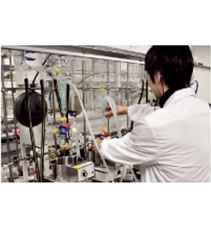
始まりは有機合成化学から
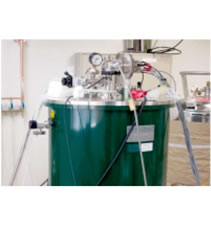
物理研究が明らかにする電子の流れ
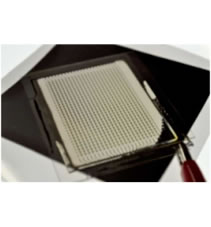
新しい価値を創造する工学研究
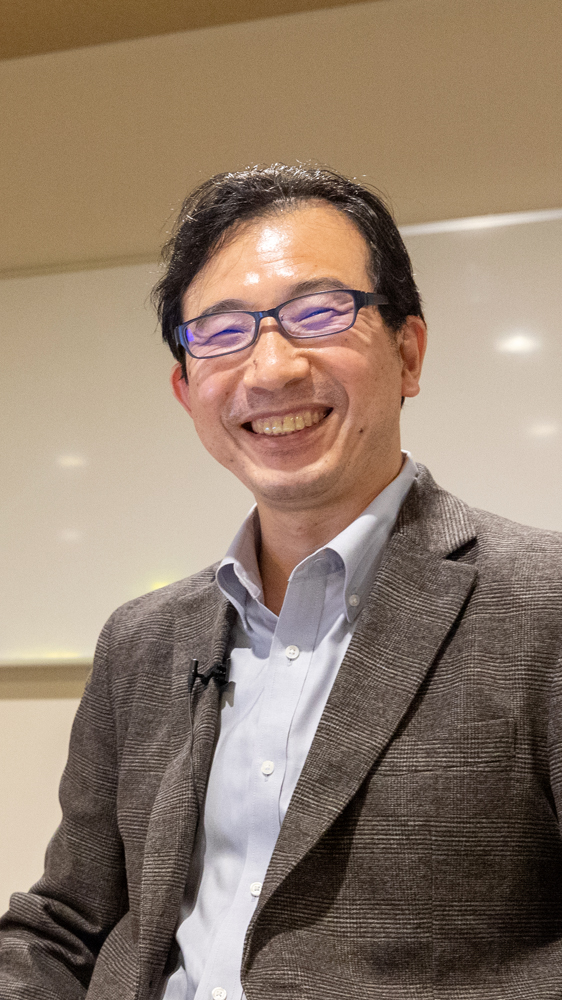
MESSAGE
POSITIVE MIND IN YOUR TOUGH TIME BRINGS OPPORTUNITY. CONSIDERING A BIT MORE DEEPLY ALWAYS HELPS.
It is by accident ten years ago that I joined the research field of organic semiconductor materials, which seizes my heart and mind now. When I was dreaming of applying the technology of field-effect transistors various exotic materials to control electron density simply by external electric field, many fascinating data appeared in journals reporting such effects using organic materials, which turned out to be a fake afterwards. Since I already invested a lot before I recognized the truth, the incident caused the greatest pinch in my life. However, it was because of this unusual experience that I deeply noticed very different characters of organic materials, i.e. softness, low electronic charge density, and controllability by external stimulation as a result. The experience also taught me the power of being positive so that any uncommon experience turns into a treasure at the end. I am leading a group with experts in chemistry, physics and engineering to develop unprecedented materials with fast operating frequency for future low-cost and printable electronics industry. Your exciting ideas are welcome to contribute the future.
keyword
Organic semiconductors / Organic/molecular electronics / Electronic phase transition / Organic single crystal semiconductors / Two-dimensional electron gas / Quantum electronics / Organic transistors / Organic single crystal transistors / Electron transport properties / Single crystals / Sensors / Molecular vibration / Mechanoelectronics / Electronic devices / Surface/interface physical properties / Molecular solids / Organic field effect transistor / Hall effect / Field effect / Micro single crystal / Electrical property variation simulation / Charge injection / Contact resistance / Field effect transistor / Integrated circuit / Flexible electronics / Semiconductor / Organic electronics / Electronic phase control / Device engineering / Organic semiconductor materials / Organic semiconductor single crystals / Organic synthesis / Spin electronics / Spin transistors / Spintronics / Strain sensors / Ultra-thin film organic semiconductors / Sensor devices / Strain stress / Sensors / Single crystal organic thin films / High Mobility organic semiconductors / organic semiconductor devices / synthetic chemistry / organic molecules / transport properties / soft chemical reactions / thermal conductivity
PROFILE : Professor Junichi Takeya
1991 Master, Department of Physics, Graduate School of Science, The University of Tokyo
1991 Researcher, Central Research Institute of Electric Power Industry
2001 PhD, Department of Physics, Graduate School of Science, The University of Tokyo
2001 Visiting Researcher, ETH, Switzeraland
2005 Visiting Researcher, RIKEN
2005 Visiting Associate Professor, IMR, Tohoku University
2006 Associate Professor, Graduate School of Science, Osaka University
2010 Professor, Institute of Scientific and Industrial Research, Osaka University
2013 Professor, School of Frontier Sciences, The University of Tokyo
Associate Professor Yasunari Tamai
PROFILE
2013 Ph D, Department of Polymer Chemistry, Kyoto University
2013 Postdoctoral Researcher, Kyoto University
2015 Postdoctoral Researcher, University of Cambridge, UK
2016 Assistant Professor, Department of Polymer Chemistry, Kyoto University
2018 JST PRESTO Researcher
2023 Associate Professor, Graduate School of Frontier Sciences, The University of Tokyo
2023 JST PRESTO Researcher
keyword
Organic thin-film solar cells / High-speed spectroscopy / Charge recombination / Charge separation / Transient absorption spectroscopy / Charge dissociation / Charge transfer / Exciton / TTA / Upconversion / Heterojunction / Ultrashort pulse spectroscopy / Photoelectric conversion / Conjugated polymer / Transient absorption spectroscopy
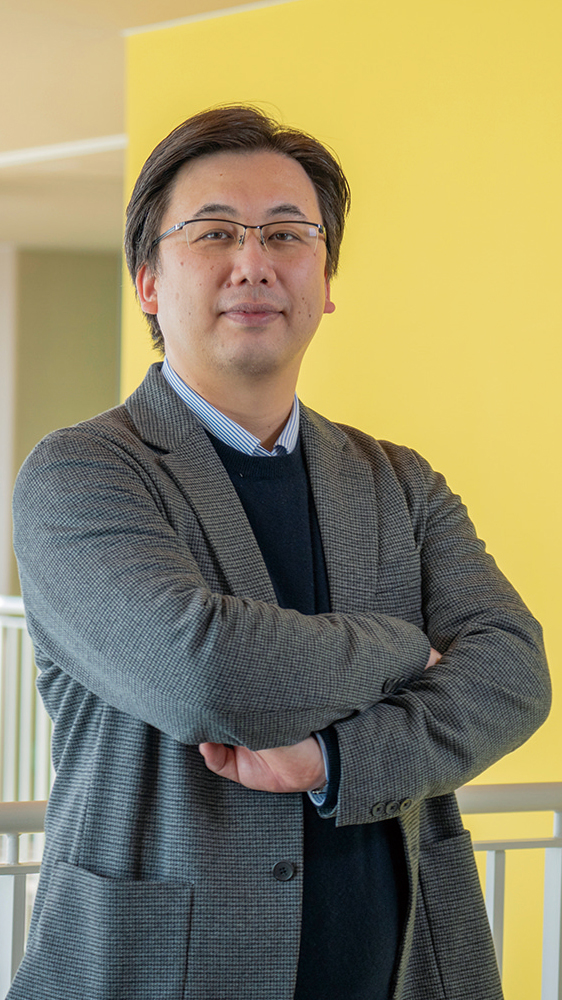
STUDENT VOICE : CHIZURU SAWABE
In our laboratory, we are conducting the frontier research on organic electronics with our professors, who have different backgrounds from physics or chemistry. I feel that their keen ideas presented in daily discussions are always full of enthusiasm for research and are the driving force for promoting a wide range of research from basics to industrial applications. The members of our laboratory work on a wide variety of research topics, and sometimes I can get new perspectives from members whose research topics seem to have little relevance to mine.
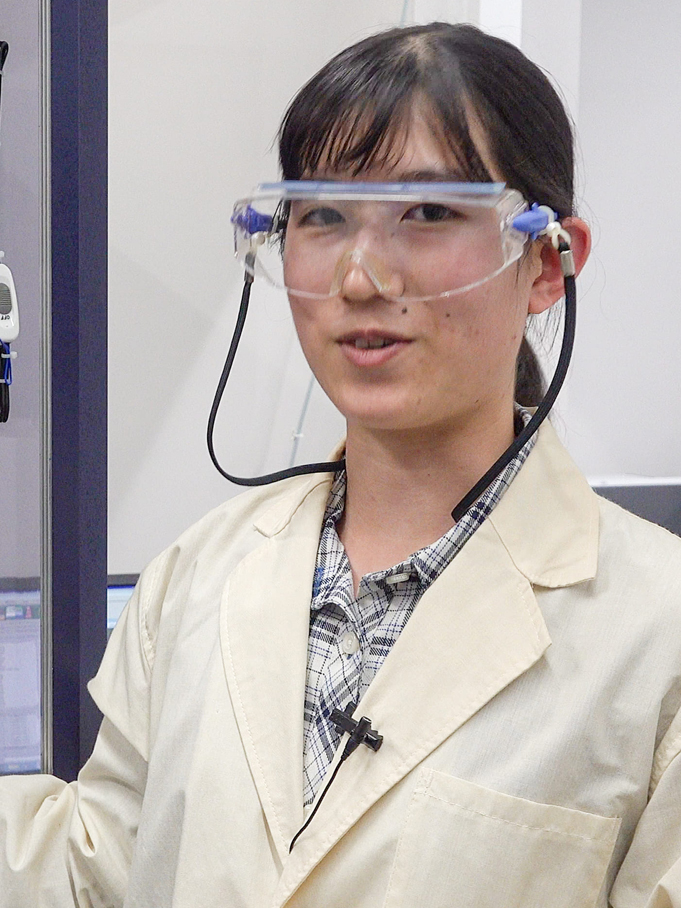
NEW MATERIALS AND INTERFACES
Engineering research that creates new value.
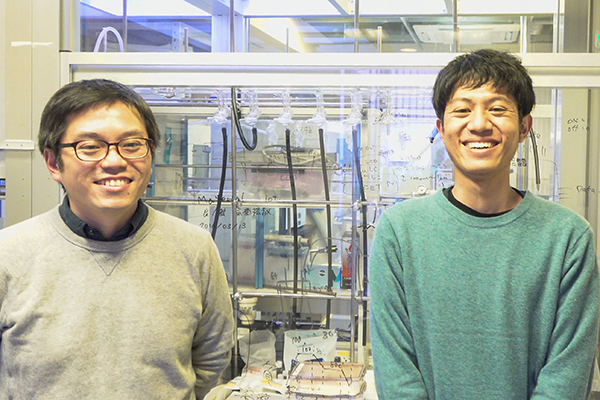
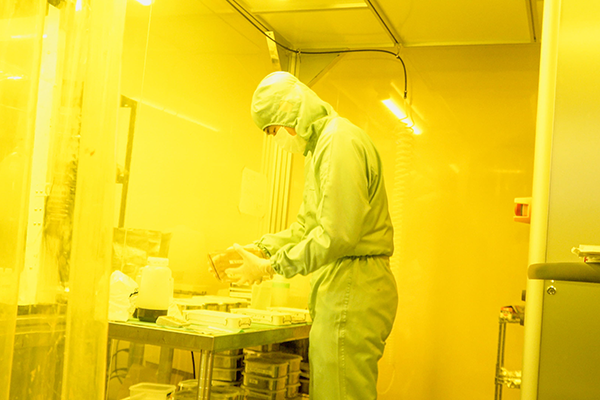
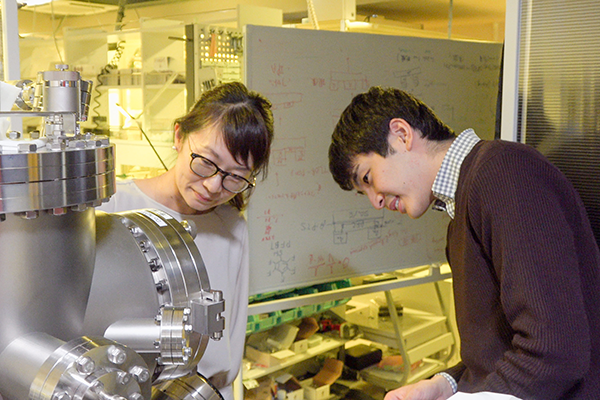
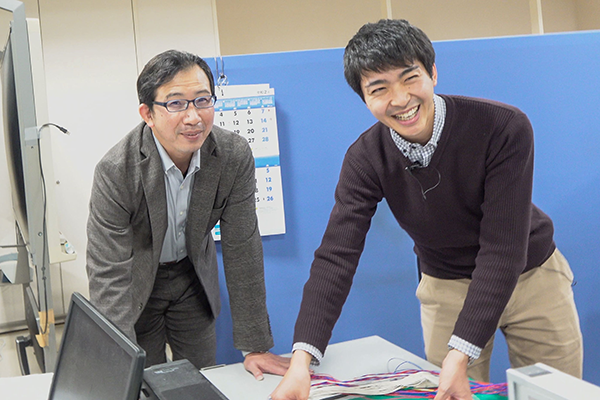
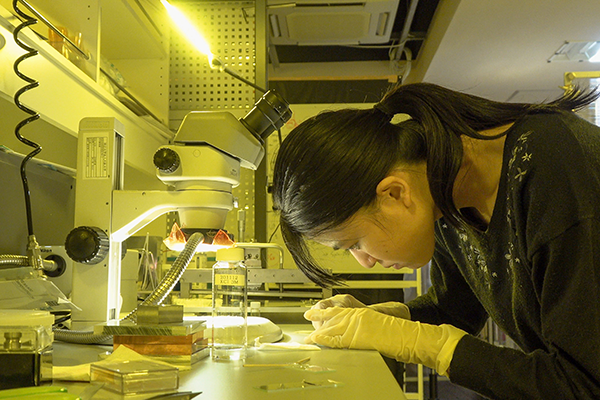
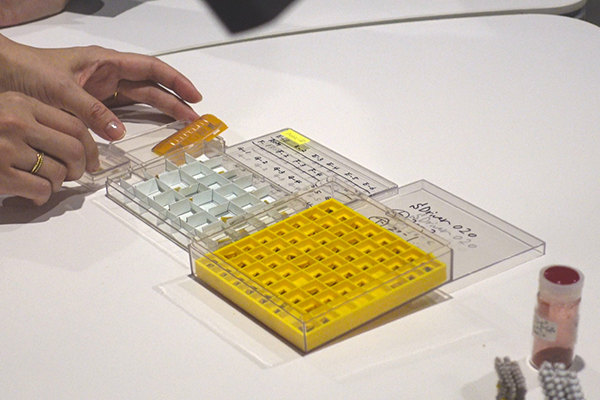
Junichi Takeya & Yasunari tamai Lab.,
Department Of Advanced Materials Science,
Graduate School of Frontier Sciences,
The University of Tokyo
Kashiwanoha 5-1-5,
Kashiwa,Chiba 277-8561, Japan
+81-4-7136-3790(Takeya)
takeya@k.u-tokyo.ac.jp
+81-4-7136-3765(Tamai)
tamai@edu.k.u-tokyo.ac.jp
The Goal of Applied Physics
The goal of Applied Physics is to develop a stage = “new material” that can manipulate undeveloped degrees of freedom, to explore unknown phenomena created from that stage and to bring out excellent functions, and to bring out its excellent functions. The purpose is to contribute to the development of human society by elucidating the mechanisms and developing application fields for these phenomena and functions.
AMS (Advanced Materials Science)
Department Office
AMS (Advanced Materials Science),
Graduate School of Frontier Sciences,
The University of Tokyo
Kashiwanoha 5-1-5, Kashiwa, Chiba 277-8561, Japan
Email : ams-office(at)ams.k.u-tokyo.ac.jp
Please change (at) to @.
